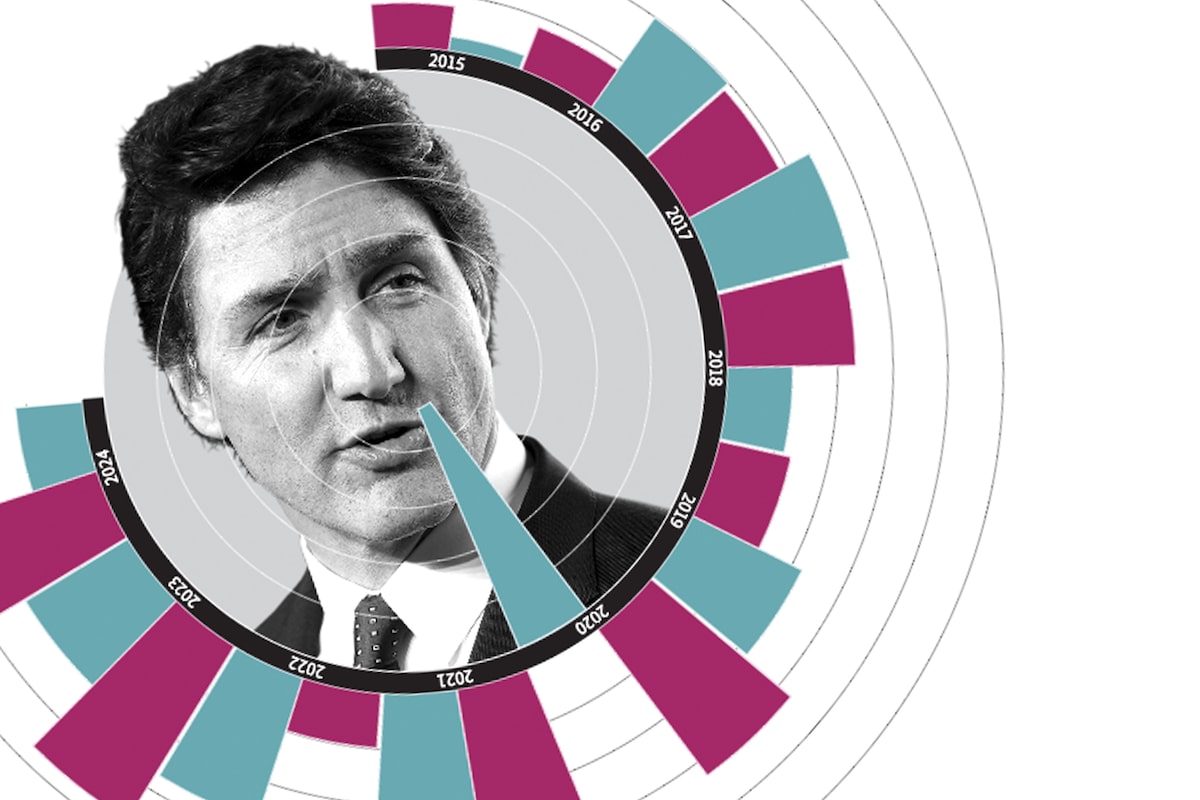Interesting article on growth in public sector jobs over the past decade. What I got from it: lots of people were hired during the pandemic to handle pandemic-related initiatives; aside from that, lots of people were hired in general; governments appear to hire in times of economic uncertainty (e.g. growth under Harper during 2008+); federal unions argue staffing levels are returning to “normal”.
But the killer is the last section where the author tries to figure out if we’re getting value for money. The answer is short and sour: Canadians don’t think so, and internal targets aren’t being met.
Are Canadians getting bang for their taxpayer buck?
… One way to gauge that is through surveys, which doesn’t leave Canada looking good relative to its international peers. The OECD polls residents at its member countries on their satisfaction with public services such as health care and education, and between 2017 and 2022, Canada experienced the largest decline in satisfaction among G7 countries for education (from 73 to 67 per cent) while the drop in health care satisfaction matched that of the United Kingdom, but to the lowest level in the G7 (from 69 to 56 per cent).
… The share of respondents who said their provincial government had done a “good” or “very good” job fell overall from close to half in the first quarter of 2019 to 30 per cent at the end of 2023. Both B.C. and Quebec, two provinces that have seen public-sector job growth rise particularly quickly, registered some of the worst declines.
… the Office of the Parliamentary Budget Officer (PBO) reviewed four years of results reports to see how the government measured up against nearly 3,000 performance targets it had set for itself. The assessments weren’t promising. For fiscal 2021-22, roughly 25 per cent of targets were not met, up from 20 per cent in 2018-19. But that didn’t capture the full scale of the performance shortfall. One-tenth of performance targets included no information on results, while another one-third stated results would be achieved at some point in the future.
Yeah, that mixes provincial services with federal ones.



The idea that the cons cut gov employees - usually in inspection, regulation and services, because #con - shouldn’t be a surprise; nor the restoration of those crucial positions as soon as we get someone in who values safe food and good building codes and wants to reduce corruption.
… Because apparently we can’t have trickle-down utopia while we have food inspectors and tax-cheat investigators.
But I’ll quickly take issue with any idea that gov people are overpaid. For the added background checks, scrutiny, hall-monitor management and management+hr-vs-union fights, gov employees make 20% less at least than their dotcom counterparts. Apples to apples, every time I compare a union job with a dotcom job, the dotcom pays far more. (If money’s all you care about and you can’t move to Texas, then still stay clear of the gov for work)
That’s for specialized fields, for desk jobs that require a highschool diploma they pay more than the private sector, but it would be ridiculous to pretend that it means the government should let them go to help the private sector, especially since it’s client facing jobs in most cases!